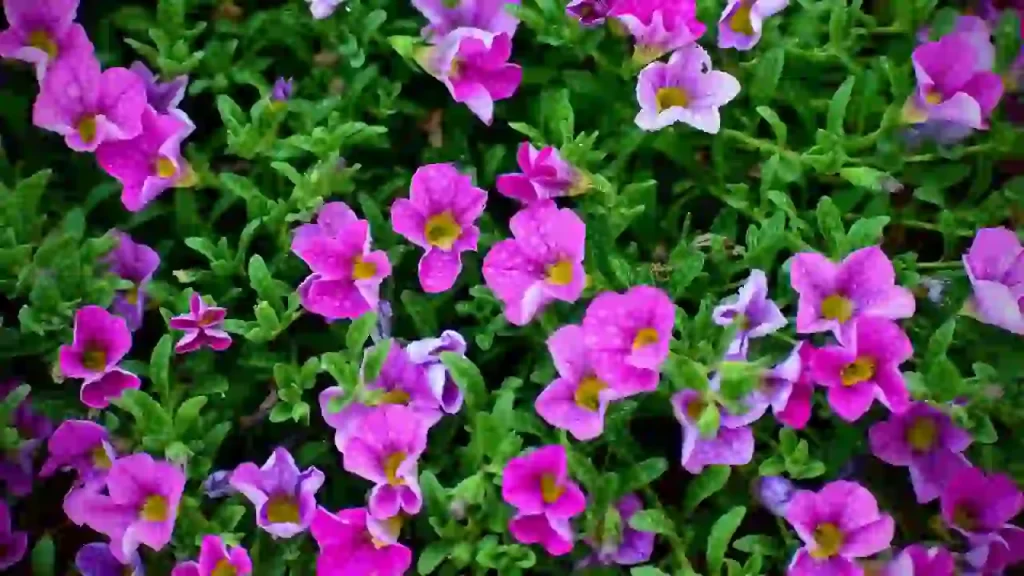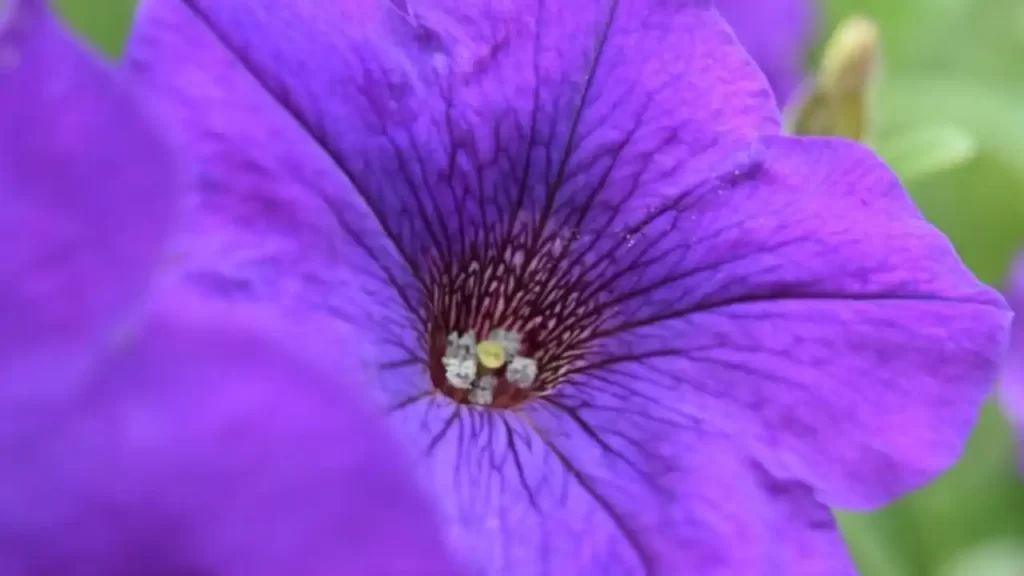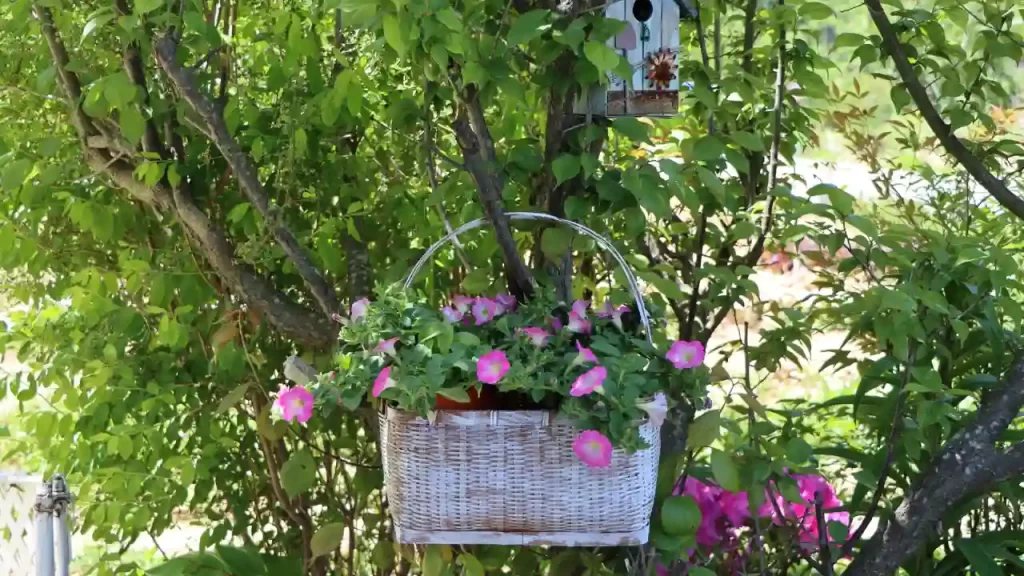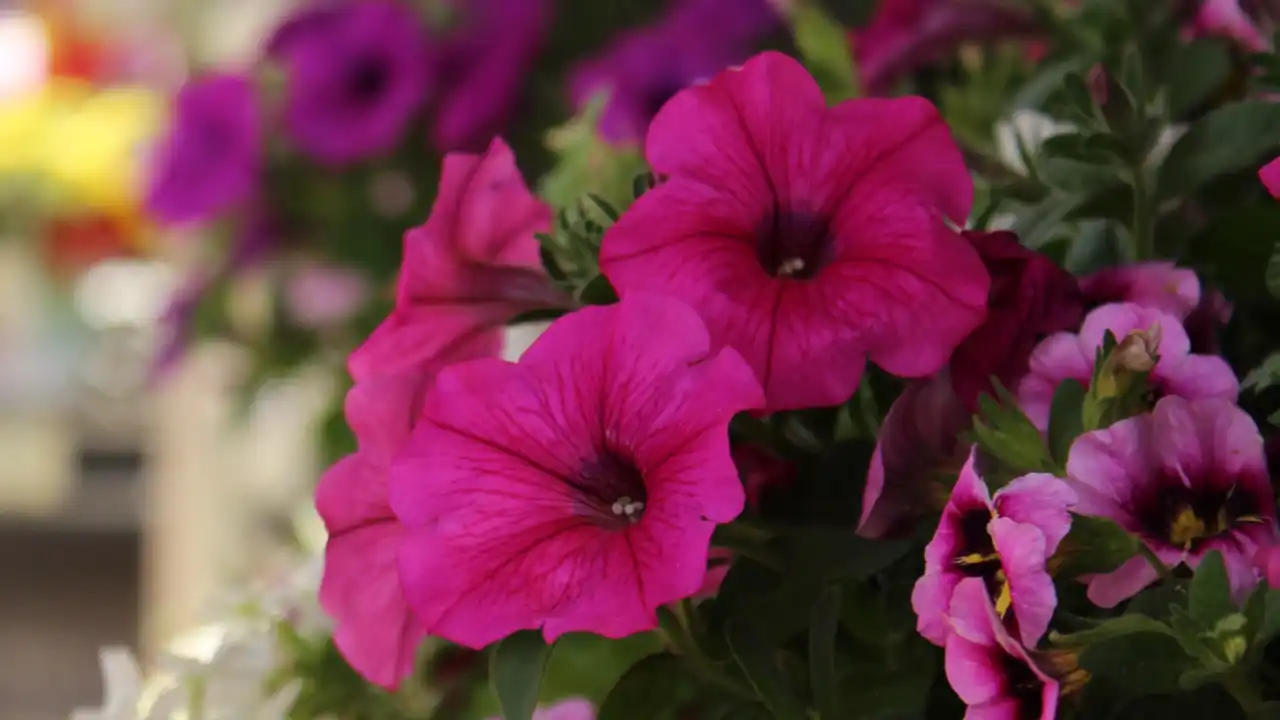Growing petunias in your garden is a sure-fire way to add long-term color to your outdoor living space. Petunias, blooming from spring to frost, are showy and fragrant, offering your garden a wide variety of lovely pastel colors, but do petunias need full sun or shade to bloom?
Petunias need at least six hours of direct sunlight per day to grow and thrive. While these prolific bloomers can still produce flowers with four to five hours of sunlight, six hours ensures abundant and long-lasting flowers. That’s why petunia plants should be grown outdoors in a sunny location.
One of the easiest and most colorful flowers to grow in your garden are petunias.
Continue reading to learn more about petunia sun requirements and how to grow the most vibrantly colored garden.
How Much Sun Do Petunias Need?
Petunias are the flowering annuals and the ultimate sun worshippers. Regardless of their size and variety, petunias need full sun to grow healthily and produce tons of colorful blooms.
Full sun is receiving at least six hours of direct sunlight per day. For petunias, they’ll need to be planted in an area that receives six to eight hours of direct sunlight a day. The hours don’t have to be continuous, though!
Petunias will get their fair share of full sun even if they’re planted in an area that receives three hours of direct sunlight in the morning and another three hours in the afternoon.
If you have an indoor petunia, you should consider moving it to a south-facing window. This position ensures that your petunias are exposed to light as the sun moves from east to west.
Some gardeners may recommend that petunias can thrive on four to six hours of direct sunlight a day. However, four hours of sunlight isn’t enough for petunias to thrive and produce long-lasting, colorful blooms.
Can Petunias Grow and Bloom in Indirect Sunlight?

While bright indirect sunlight isn’t the most ideal, petunias will still grow, produce flowers, and stay healthy. They just won’t grow as quickly or as magnificently as petunias grown in direct full sun.
To compensate for the lack of direct sunlight, petunias should receive at least eight hours of bright indirect light per day. They can even be left for up to 12 hours. Artificial light will most likely provide your petunias with the extra growth boost it needs to blossom beautifully.
If you can’t get 10–12 hours of indirect sunlight where you live, you can always use artificial light.
Just keep in mind that while artificial lights can help your petunia plants grow, they’re not meant to replace natural sunlight. They should also be used on your plants for at least 14 hours per day.
What’s more, even in partial shade, petunias will struggle to bloom. The more shade your petunias are exposed to, the less flower production they’ll have. The flowers will also fade in color much quicker
That’s why it’s crucial to keep your petunias, regardless of variety, in full sun if you want them to bloom profusely.
Is It Possible for Petunias to Receive Too Much Sun?
For sun-loving petunias, there’s no such thing as too much sunlight. These flowering plants will bask in as much sun as they can get, thriving and producing an abundance of showy blooms.
That said, while petunias are heat-tolerant, they’re susceptible to overheating in temperatures above 90°F. Petunias, both indoor and outdoor, require adequate moisture to avoid dehydration.
If these flowers are exposed to excessive heat without regular watering, their leaves will turn brown and their flowers will wilt beyond recovery.
You can protect your petunias in high temperatures by watering frequently and insulating the soil with mulch, which conserves soil moisture and protects the plants’ shallow roots.
What Happens If Petunias Get Too Little Sun?

Petunias need full sun to thrive. As a result, if they don’t get enough sunlight, they may begin to look and act strangely.
Here’s what happens if petunias aren’t getting enough sun:
Lack of Bloom in Flowering Plants
A lack of blooms is the first sign that your petunia isn’t getting enough sunlight. Petunias require full sun to bloom. So, the less sunlight they receive, the fewer flowers they produce.
Yellowing and Wilting Leaves
In most cases, petunia leaves turn yellow and wilt due to either under- or over-watering. Still, such changes in petunia foliage may indicate a lack of sunlight.
Groundcover petunia is one variety that’s prone to yellowing and wilting leaves due to a lack of sunlight. Potted petunias are also susceptible to the same fate if they’re not placed near a window that receives direct full sun.
Thinning Out and Leggy Stems
Petunias are known for their compact growth, but if not exposed to enough direct sunlight, they thin out. Instead of its lush green foliage and vibrant blooming, you’ll be able to see right through the plant.
What’s more, when petunias aren’t exposed to direct sunlight, they can become leggy. Petunias that are leggy appear thinner and weaker.
Excessive Soil Moisture
Heat-tolerant petunias prefer semi-dry soil, so excessive soil moisture is never good for these heat-tolerant flowers.
Direct sunlight evaporates excess moisture in the soil between waterings. If petunias don’t receive enough sunlight, the soil may retain moisture for longer than if it were exposed to sunlight.
Fungal Diseases in Petunia Plants
Excessive soil moisture in a shaded area is the perfect breeding ground for a variety of fungal diseases.
Petunias grown in soggy, poorly draining soil are more likely to develop root rot and crown rot, as well as other fungal diseases that can stunt plant and flower growth.
How to grow more petunia flowers in full sunlight?
Petunias need good sunlight to grow large and produce a lot of flowers. However, sunlight is not all that is needed to grow petunias.
Here are my some plating petunias hacks for getting a ton of petunias.
Petunias Need Good Quality Soil
With a good amount of sunlight, petunias plants also need a great quality soil for full coverage bloom.
If you are going to plant petunias in raised garden beds, make sure to use a bed garden mix and use cow manure. This mix will provide nutrients needed for fast growth of petunias.
However, if you are planting petunias in the ground, use compost or aged animal manure to boost the plant growth. You can also use pelted chicken manure to boost the plant growth.
Petunias Need Water Regularly
Petunias need regular watering to produce flowers. If you have planted it on the ground, water them every 2-3 days in the first week and later 3-4 days later on.
Hanging baskets and pots dry out quickly than raised garden beds and so they need more watering. Make sure to mulch petunias with bark to reduce the water evaporation from the soil and keep the moisture intact.
Use Nitrogen Fertilizer and Seaweed Solution
Petunias need seaweed solution of liquid nitrogen fertilizer for healthy growth of plant and flowers. Liquid Nitrozen is easily absorbed and growing flowers need extra nutrients for fast and perfect growth. Make sure to use liquid fertilizer once every month.
However, if you don’t get enough time to look after your petunias use pelleted chicken manure. It provides slower delivery of nitrogen to plants and lasts up to 3 months.
Deadhead Petunia Flowers
You need to deadhead petunias more frequently to get more flowers. You don’t generally need tools to do it, use your fingers to pinch off the flowers.
Deadheading petunias provide more room for new flowers and sunlight.
Choose a Petunia Type That Spreads And Grows Large Flowers
There are four types of petunias namely Grandiflora petunias, Multiflora petunias, Milliflora petunias and Spreading petunias. My personal favorite is Spreading, also known as wave. They can spread can around 2.5 feet wide and are always covered with flowers.
They are present in many colors including hot pink, lilac, red rose and purple.

How Many Hours of Sunlight do Petunias Need?
Petunias need at least 6 hours of sunlight but produces thrive mostly when it gets 8 hours of sunlight. You can even plant petunias in shade but in that case it will produce less flowers.
If you plant petunias in pot, you can place your pot in the areas that receives good sunlight.
How can I Keep My Petunias blooming?
To keep your petunias blooming you must choose a place that receive sunlight, water them regularly, use slow nitrozen release fertilizers, keep deadheading flowers, mulch bark to reduce water evaporation and maintain soil mosture.
How Long do Petunia Flowers Last?
Petunias flowers can last up to 7 days and then it starts drooping. You can pinch them with your fingers to let the new flowers replace them and also mulch bark to keep them hydrated.
In the growing season, use slow release fertilizer like pelleted chicken manure to make them thrive at their peak.
Frequently Asked Questions
Can petunias be in shade?
Petunias can grow in shade but then it won’t produce as much flowers as they produce when kept in direct sunlight. The lesser the sunlight it receives, the fewer the flowers bloom.
Do petunias like a lot of water?
Petunias are sunlight plants and therefore they require more frequent watering compared to indoor plants. When planted in pots and hanging containers, they dry out quickly and therefore watering is required more often to keep the moisture in the soil.
Do petunias prefer morning or afternoon sun?
Petunias require full sunlight to thrive. So, while planting petunias, make sure to choose a flowering bed that receives good morning sun and at least few hours of sunlight in the afternoon. Petunias won’t flower or produce less blooms if placed in shade.
What will happen if my petunias don’t get enough sun?
If your petunias don’t get enough sun it will lead to wilting. Petunias need full sun to produce more flowers and if they are placed in partial sunlight at least 5 hours of sunlight is mandatory for them to produce a decent amount of flowers.
Summary – Do Petunias Need Full Sun?
Petunias are annual flowers and one of the most ideal flowers for beginners as they require little care and produce tons of beautiful, vibrant flowers. The flower production may be compromised, though, if petunias don’t receive enough direct sunlight.
With that in mind, if you live in a shady area or have a shady garden, you should skip on growing petunias.
However, if you live in a sunny area, now you know how much petunias thrive in the sun. You can add them to sunny garden beds with other sun-loving flowers!
